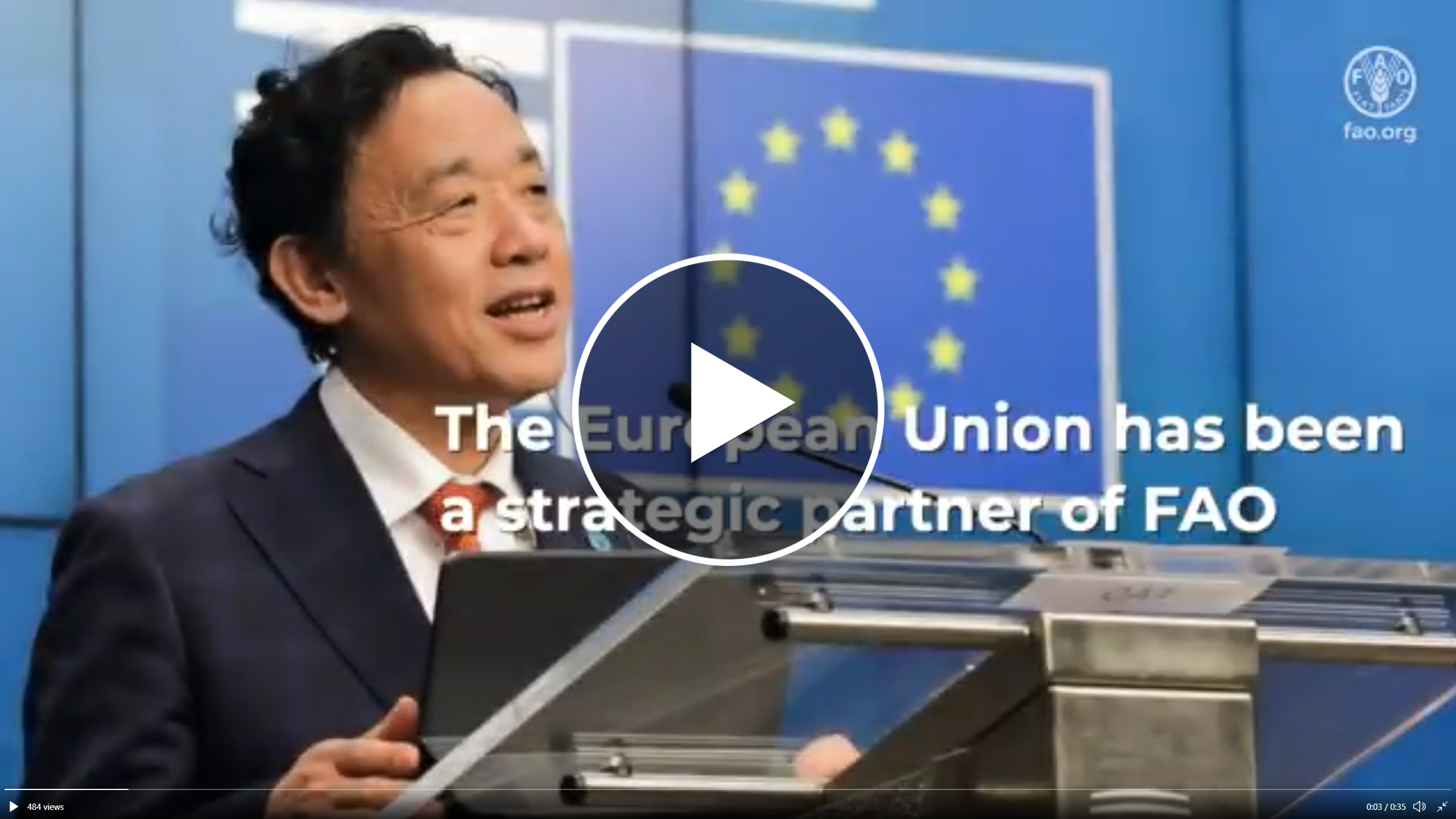European Commission
FAO maintains a solid partnership of technical cooperation with the European Commission through its different Directorate-Generals.
Together, the European Green Deal and its key Strategies and the FAO Strategic Framework 2022-2031 reflect a strong convergence and alignment of priorities to achieve a world free from hunger and malnutrition, leaving no one behind by advancing the transformation towards more efficient, inclusive, resilient and sustainable agrifood systems.

FAO + European Union: Investing in a sustainable and food secure future
06/05/2021
In 1991, the European Union (EU) became the 161st Member of the Food and Agriculture Organization of the United Nations (FAO), marking an institutional breakthrough: it was the first time that FAO welcomed a Member Organization. The EU–FAO partnership has since been sound and growing, as evidenced by the upward trend of the EU’s voluntary contributions1 in recent years. This has enabled FAO to work extensively across the globe and in those regions where assistance is most needed.
Strategic engagement with the European Commission
The EU and FAO discuss and recalibrate their partnership and strategic relation every two to four years through a Strategic Dialogue that enables them to strengthen their capacity respond in a timely, coherent, and effective manner to global challenges and developments.
The 2021 edition of the EU-FAO Strategic Dialogue was launched by the FAO Director-General QU Dongyu and EU Commissioners for International Partnerships, Jutta Urpilainen; for Health and Food Safety, Stella Kyriakides; and for Agriculture, Janusz Wojciechowski.
The 2021 Strategic Dialogue identified the following five priorities:
.jpg?sfvrsn=3d07f7b5_0)

To ensure sustainable production and consumption, as well as environmental stewardship, the EU and FAO will advance a One Health approach across the food systems to combat Antimicrobial Resistance (AMR), prevent the spread of zoonotic and transboundary diseases, ensure food safety, reduce the use pesticides, food loss and waste, as well as ensure an enabling food system regulatory framework.
Sustainable food systems imply coordinated transformative work to address climate change and biodiversity loss, halt deforestation, restore and protect global ecosystems while advancing innovative solutions to sustainably manage natural resources. Hence, the EU and FAO will closely work on the green and blue transformation of the terrestrial and aquatic food systems to reduce their environmental footprint and achieve their sustainable development.
The EU and FAO will step up their support at regional and country level to build resilient and inclusive food systems in fragile contexts, harness the game-changing potential of the Global Network Against Food Crises and improve coordination along the humanitarian-development-peace nexus.
Sustainable and inclusive agrifood value chains at the global and local level will be at the core of the EU-FAO collaboration that will aim to focus on creating an enabling environment by putting the well-being of farmers, in particular women and youth, and the health of the planet at the center of the joint efforts.
To achieve an impact at scale, digitalization and innovative disruptive solutions will drive the EU-FAO collaboration by jointly sustaining foundational data services needed for the 2030 Agenda. They will support digital public goods that aim to increase resilience and adaptability of rural communities, increase food security, bridge the digital divide, support data-driven policymaking, support digital literacy, short and transparent value chains, as well as private sector engagement.

